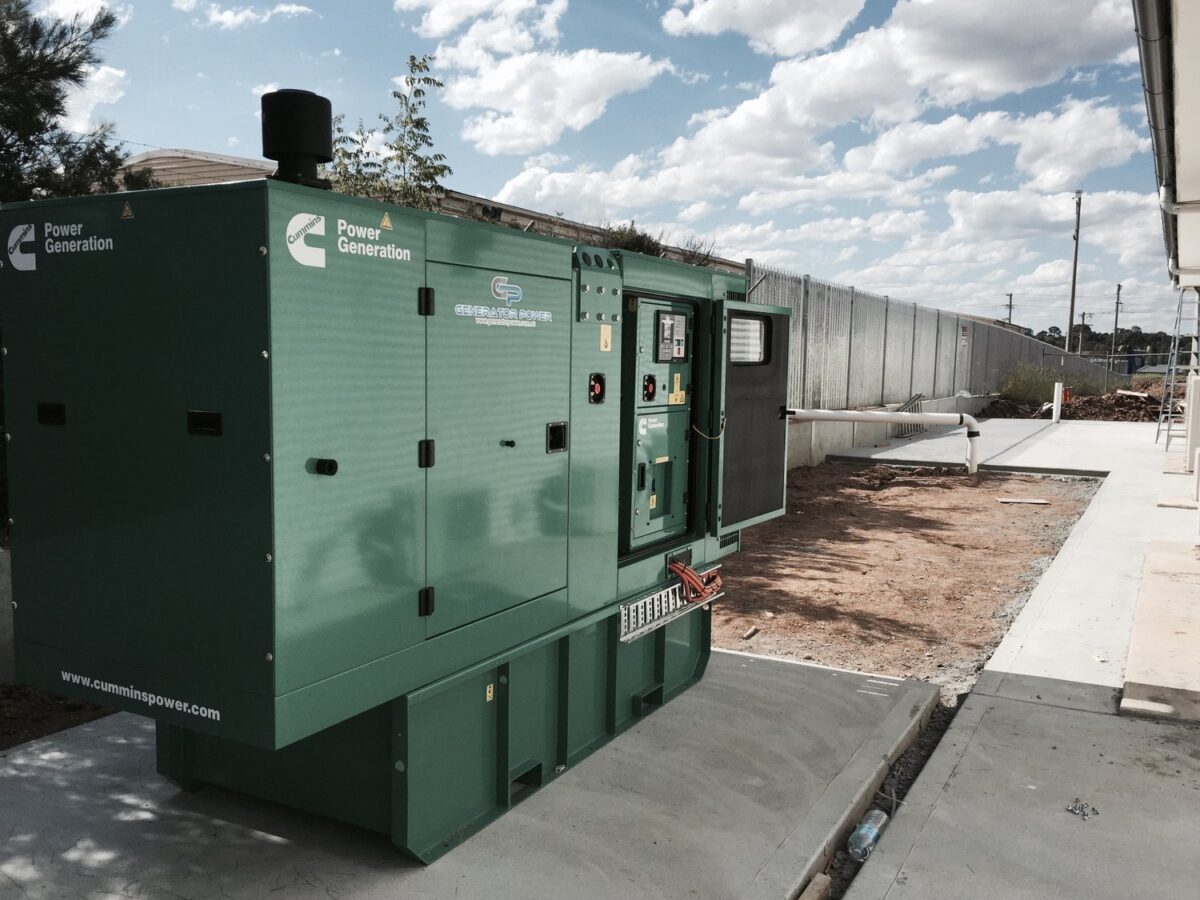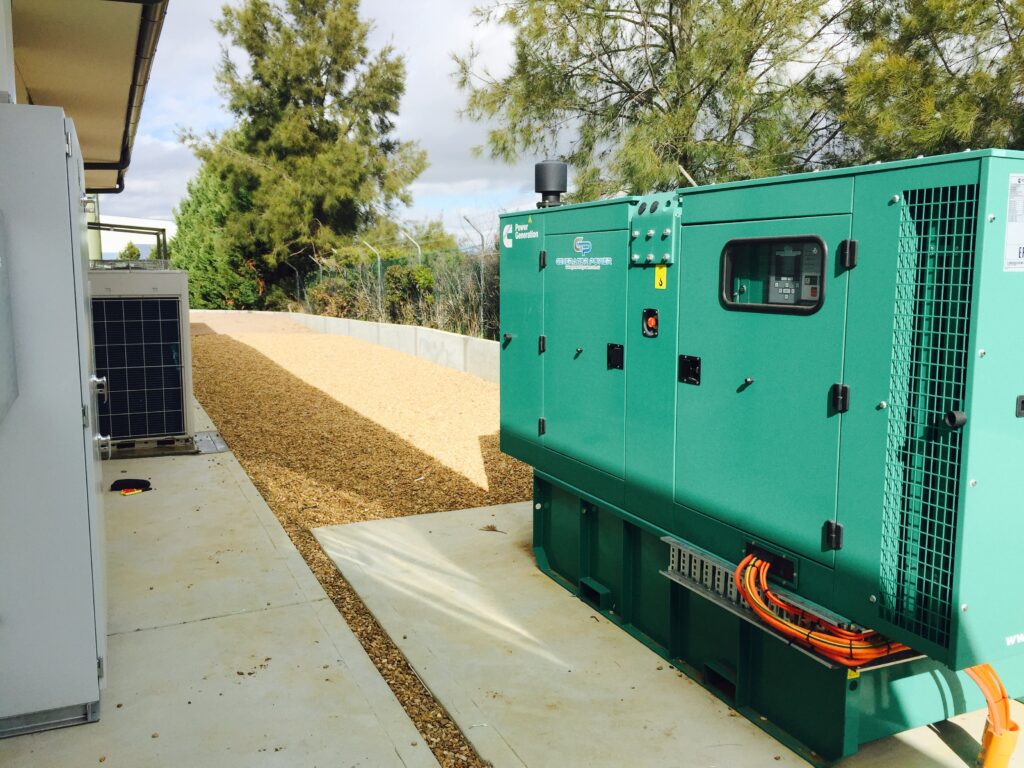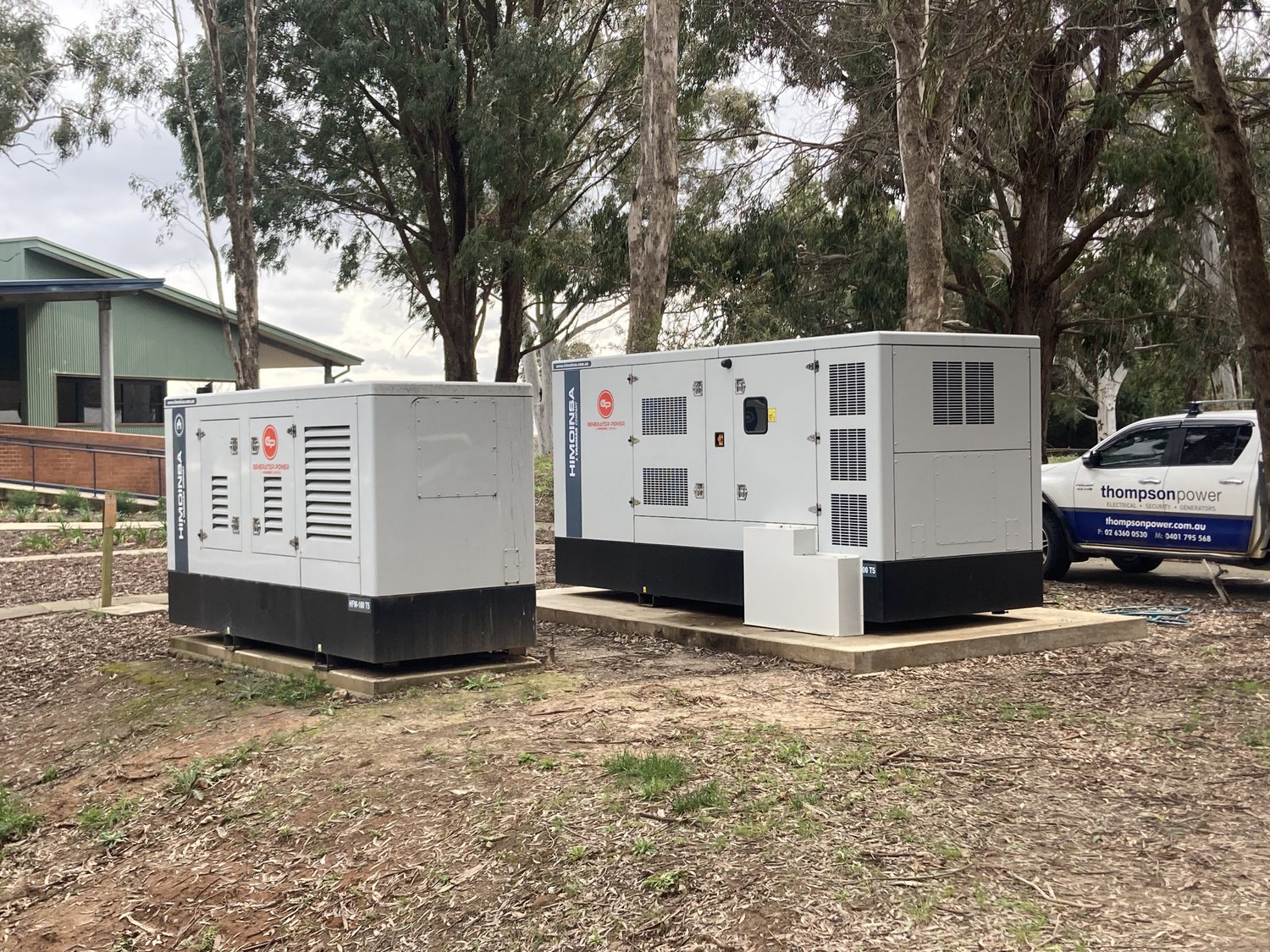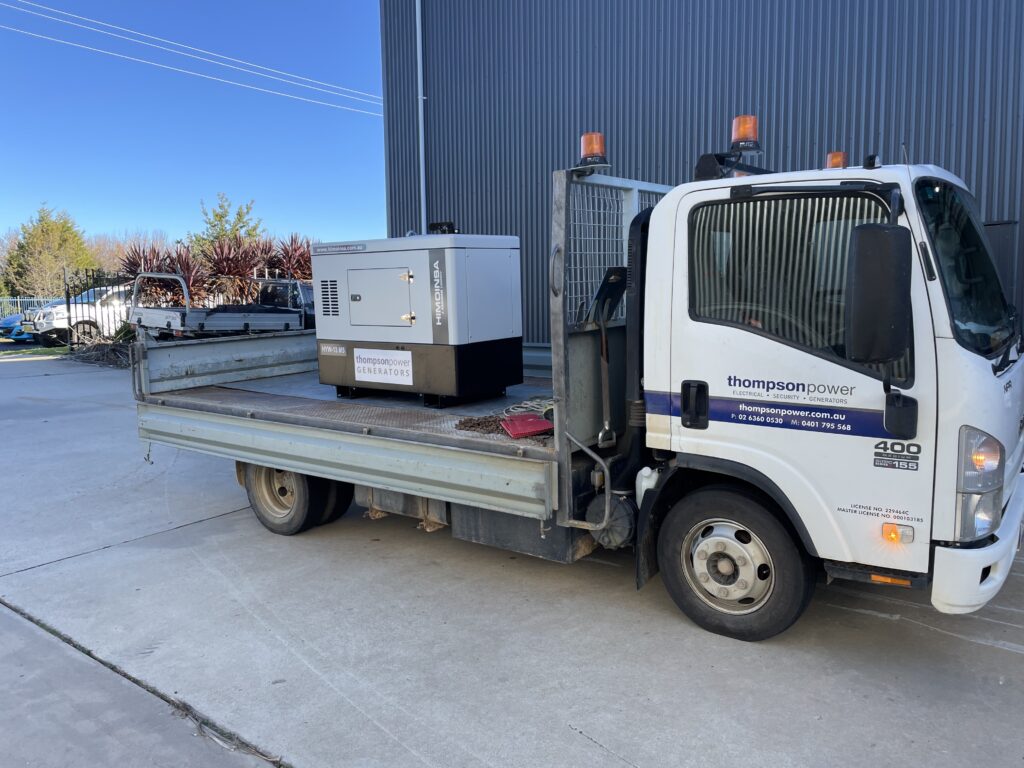Can a Generator Get Wet?

Hiring a generator is the best way to get power to a remote or disconnected site. But these areas are often under development, which can leave your generator sitting out in the weather.
Clients ask whether it’s safe to get a generator wet in these conditions. The answer depends on the make and model of the generator, as well as the severity of the weather you’re facing.
In this article, we’ll see whether you can get a generator wet, and some tips on operating generators when it’s raining.

Can a Generator Get Wet?
Most generators can withstand a small splash, but they shouldn’t get thoroughly wet (e.g. from a garden hose or rain storm).
This is because generators are based on internal combustion engines. If water gets into the engine, it can cause corrosion and damage, or even lock up the engine completely.
Water can also damage switchboards, wiring and other electrical components. Moisture can reduce the efficiency of a generator and increase the risk of electrocution.
Tips for Operating a Generator in the Rain
While generators shouldn’t get wet, it’s possible to run a generator in the rain if you take the proper precautions. Here are our tips for operating a generator when it’s raining:
- Keep Your Generator Covered
Generators should be kept covered to prevent water from getting into sensitive components. A permanent structure is the most effective way to cover a generator, but a tarp can be used in a pinch.
If you plan to operate the generator while it’s covered, make sure the cover provides adequate ventilation. Generators need fresh air to function and they generate exhaust gases that can be harmful to breathe in enclosed spaces. - Ensure Electrical Gear is Protected
Covering the generator itself is just the start. You also need to weatherproof any of the attached electrical equipment. This includes electrical cords and terminals, switchboards, tools and anything else that’s onsite. - Invest in a High Quality Generator
Higher quality generators may come with additional covers. For example, some Himoinsa generators are supplied with waterproof canopies.
These can protect your generator from rain or an accidental splash. While you might spend a little more hiring a quality generator, you’ll save on maintenance and repairs, and the system will be safe to use in poor weather.
We still recommend pairing high quality generators with a protective cover if you’re expecting serious rain. - Consider Long-Term Installation
Long-term generator installations come with all the weather protection you need. As part of the design process, we’ll work with you to decide how to prevent water, rain and bad weather from affecting your generator’s performance.

What to Do if Your Generator Gets Wet
Accidents can happen. If your generator gets wet or is left out in the rain, immediately switch off the engine. This will prevent the engine from sucking any water into the intake and damaging internal components.
If your generator gets wet while it’s not operating, avoid turning the unit on. Leave it to dry completely and book a generator maintenance appointment.
Water damage can require costly repairs, so we recommend covering your generator or avoiding using it in the wet as much as possible.

Get a Generator That’s Perfect for Any Weather With Thompson Power!
Portable generators are the perfect solution for any worksite. When you need lots of power in remote or disconnected areas, Thompson Power can provide generator hire and installation to suit your needs.
Thompson Power is a specialist electrician that offers 3 phase generator hire across Central Western NSW. Our fleet includes 3 phase generators from some of Australia’s favourite manufacturers, including Himoinsa, Cummins and Kubota.
These brands produce high quality generators that are ideal for hard use in remote areas. While we don’t recommend getting these generators wet, our team can provide advice on weatherproofing, so you can use your generator in any conditions.
Book your generator hire online, or contact us to learn more about our services!
